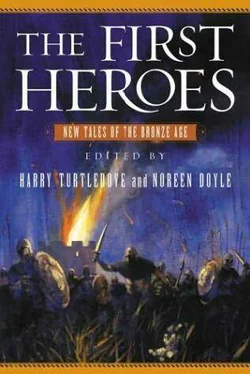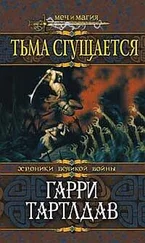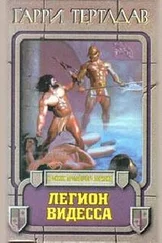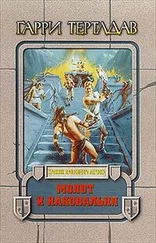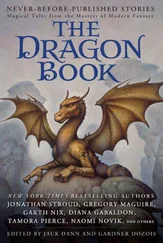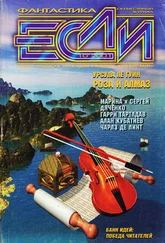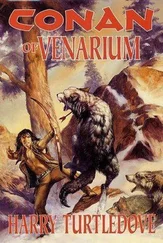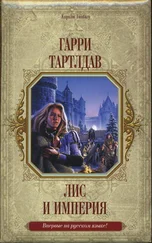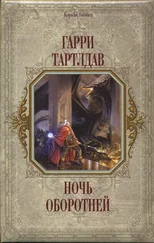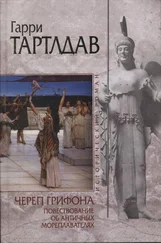Гарри Тертлдав - The First Heroes
Здесь есть возможность читать онлайн «Гарри Тертлдав - The First Heroes» весь текст электронной книги совершенно бесплатно (целиком полную версию без сокращений). В некоторых случаях можно слушать аудио, скачать через торрент в формате fb2 и присутствует краткое содержание. Жанр: Фантастика и фэнтези, на английском языке. Описание произведения, (предисловие) а так же отзывы посетителей доступны на портале библиотеки ЛибКат.
- Название:The First Heroes
- Автор:
- Жанр:
- Год:неизвестен
- ISBN:нет данных
- Рейтинг книги:3 / 5. Голосов: 1
-
Избранное:Добавить в избранное
- Отзывы:
-
Ваша оценка:
- 60
- 1
- 2
- 3
- 4
- 5
The First Heroes: краткое содержание, описание и аннотация
Предлагаем к чтению аннотацию, описание, краткое содержание или предисловие (зависит от того, что написал сам автор книги «The First Heroes»). Если вы не нашли необходимую информацию о книге — напишите в комментариях, мы постараемся отыскать её.
The First Heroes — читать онлайн бесплатно полную книгу (весь текст) целиком
Ниже представлен текст книги, разбитый по страницам. Система сохранения места последней прочитанной страницы, позволяет с удобством читать онлайн бесплатно книгу «The First Heroes», без необходимости каждый раз заново искать на чём Вы остановились. Поставьте закладку, и сможете в любой момент перейти на страницу, на которой закончили чтение.
Интервал:
Закладка:
The king did not die prettily. Inanna had not wished him to. When his thrashing had stopped, when he had gaped and voided and died, she drew the blade from his heart and wiped it clean on the coverlets. Still naked, still stained with his blood, she walked out to face the people of Aratta.
The sun was setting in blood and the cold of night coming down, when the god rode through the gate of the city. His horse's thick coat was matted with sweat, but the beast was still fresh enough to dance and snort as it passed beneath the arch.
The god rode from the outer gate to the inner and into the citadel, and up to the hall. Inanna waited there, seated on the king's throne, with the bronze dagger on her knee, still stained with the king's blood. His body was her footstool.
She was wrapped in the lionskin that had been the king's great vaunt and the mark of his office. The king's body was wrapped in nothing at all. The five men of Uruk guarded them both, the living and the dead, but there was no defiance in Aratta, not before the wrath of a goddess.
She knew that she could expect treachery—she had braced for it, made such plans as she could against it. But the coming of the god of chariots had shocked them all into stillness. His wrath was the mirror of her own. The marks on him told the cause of it. He had been taken and bound and forced to serve a mortal will. And she had robbed him of his revenge. She offered him no apology. She had done what she must. He saw that: his eyes did not soften, but his head bent the merest fraction. "The great gods bless your return," she said to him. "Have you seen my men? They were hunting you." "They found me, lady," he said. "They set me free. I bade them follow as quickly as they could. They'll be here by morning."
"So they will," she said, "if Lugalbanda leads them." And tonight, she was careful not to say, she would have six men and a god to guard her, and a city that watched and waited for the first sign of weakness.
She would hold, because she must. The king's body at her feet, his unquiet spirit in the hall, were more protection than an army of living men. She rose. She was interested to see how many of the king's court and council flinched, and how many watched her with keen speculation.
The god spoke before she could begin. His voice was soft, almost gentle. He was naming names.
With each, the man who belonged to it came forward. They were young men, most of them; she remembered some of their faces from the field of chariots. These were his charioteers. There were a good half-hundred of them, many of whom advanced before he could speak their names, coming to stand beside her loyal few.
They were a fair army when they were all gathered, surrounding her in ranks as if they were ordered for a march, with the god on his horse in the midst of them. He smiled at her, a remarkably sweet smile, and said, "Hail the queen of Aratta."
"Hail," said the men whom he had summoned to her defense. "Hail the queen, lady and goddess, the glory of Aratta."
"A bargain is a bargain," Inanna said as they stood on the field of chariots, outside the walls of Aratta. A keen wind was blowing, with a memory of winter in it still, but spring softened it with the scent of flowers. "Uruk still needs Aratta—and I've made myself queen of it. Now my brother can trust that he will have the means to fight the Martu."
"But—" said Lugalbanda, knowing even as he said it that he could not win this battle.
"There are no buts," Inanna said. "I've won this city by marriage and by conquest. I dare not leave it to the next man who may be minded to seize it. It is mine—and its charioteers will serve me, because their god has bound them to it."
Lugalbanda let the rest of his protests sink into silence. She was not to be moved. She would stay and be queen, and teach these people to honor their bargains. The god would go, because he had promised.
"There will be a great emptiness in Uruk," said Lugalbanda, "now that you are gone from it."
"You've lost a goddess," she said, "but gained a god. It seems a fair exchange."
So it was, he supposed, if one regarded it with a cold eye. But his heart knew otherwise.
He bowed low before her, and kept the rest of his grief to himself. Winter was gone; the passes were open. He could bring the god of chariots over the mountains to Uruk. Then when the Martu came again, they would find a new weapon, and new strength among the soft folk of the city.
When he straightened, she had already forgotten him. Her eyes were on the god of chariots, and his on her, and such a light between them that Lugalbanda raised his hand to shield his face.
"I will be in Uruk," the god said, "for as long as I am needed. But when that need is past, look for me." "You would come back?" she asked him. "You would suffer again the shadows of trees, and mountains that close in the sky?" "Trees are not so ill," he said, "in the heat of summer, and mountains are the favored abode of gods."
"There are no mountains in Uruk," she said.
"Just so," said the god of chariots. He bowed before her as Lugalbanda had, but with markedly more grace. "Fare you well, my lady of the high places." "And you, my lord," she said. "May the light of heaven shine upon your road." He mounted his horse. The caravan was ranked and waiting, with a score of chariots before and behind. The new queen of Aratta was far more generous than the king had been: she was sending a rich gift to her brother, a strong force for the defense of Uruk.
She remained in the field, alone in the crowd of her servants, until the caravan was far away. Lugalbanda, walking last of all, looked back just before the road bent round a hill. She was still there, crowned with gold, bright as a flame amid the new green grass.
He took that memory away with him, held close in his heart. Long after he had left the city behind, as the mountains rose to meet the sky, he remembered her beauty and her bravery and her sacrifice. She would have her reward when the Martu were driven away: when the god of chariots came back to her. He would rule beside her in Aratta, and forge bronze for her, and defend her with chariots.
It was right and proper that it should be so. Even Lugalbanda, who loved her without hope of return, could admit it. A goddess should mate with a god. So the world was made. So it would always be.
Whether for tin or wine or gold or amber, commerce brought the Bronze Age cultures of northern and western Europe into contact with peoples of the south and east. With luxuries and staples, merchants wove vast webs of resources, creating an interdependence among powers great and small, far and near. How alien such travelers must have found the lands they visited and their inhabitants, and how strange these travelers and their goods must have seemed to their hosts. At such convergences foreign notion s hybridized with one another and norms mutated as people were forced to adapt, embracing or rejecting influences far more profound than the material goods brought by merchant ship or caravan.
Harry Turtledove, master of the myriad ifs of history, explores how how much stranger still it might be if these Bronze Age peoples had not been—quite—human.
The Horse of Bronze
Harry Turtledove
I knew, the last time we fought the sphinxes, this dearth of tin would trouble us. I knew, and I was right, and I had the privilege—if that is what you want to call it—of saying as much beforehand, so that a good many of the hes in the warband heard me being clever. And much grief and labor and danger and fear my cleverness won for me, too, though I could not know that ahead of time.
"Oh, copper will serve well enough," said Oreus, who is a he who needs no wine to run wild. He brandished an axe. It gleamed red as blood in the firelight of our encampment, for he had polished it with loving care.
Читать дальшеИнтервал:
Закладка:
Похожие книги на «The First Heroes»
Представляем Вашему вниманию похожие книги на «The First Heroes» списком для выбора. Мы отобрали схожую по названию и смыслу литературу в надежде предоставить читателям больше вариантов отыскать новые, интересные, ещё непрочитанные произведения.
Обсуждение, отзывы о книге «The First Heroes» и просто собственные мнения читателей. Оставьте ваши комментарии, напишите, что Вы думаете о произведении, его смысле или главных героях. Укажите что конкретно понравилось, а что нет, и почему Вы так считаете.
